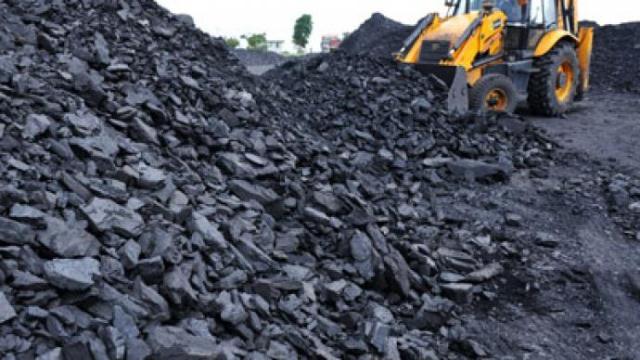About 3.5m tons of coal is imported every year to meet the country’s demand. The rest is met from coal mines in Balochistan. PHOTO: FILE
PUBLISHED
March 30, 2025
KARACHI:
Pakistan is grappling with a deepening environmental crisis, driven by unchecked development, a burgeoning population, and the far-reaching impact of investments from its northern neighbour, China, which is reshaping the country’s landscape — from the coalfields of Tharparkar to the ports of Gwadar — at an alarming pace.
In a wide-ranging interview, nuclear physicist and activist Pervez Hoodbhoy cautioned of the devastating toll of coal mining, water mismanagement, and the failure to embrace renewable energy, offering a bleak assessment of the country’s future.
On the most pressing issue of the Thar coal-mining project in Sindh, a joint venture between Pakistan and China, Hoodbhoy did not hold back in his criticism. “We are poisoning the water. To run a coal-mining project, you have to have lots and lots of water. And when it’s put back into the ground, it is poisoned.” Thar’s coal, he said, is of poor quality, with high sulphur content and low energy efficiency. Yet, he argued that China continues to push such projects.
“The Chinese industry is pushing to sell coal-powered plants and mining equipment while building the infrastructure for coal extraction — despite the well-documented and severe environmental consequences.”
This economic dependence, he added, extends beyond infrastructure. “I might also mention that the only customer for China’s nuclear power plants is Pakistan. No other country in the world is buying Chinese nuclear plants except for Pakistan. And we’ve bought lots of them for prices that have yet to be disclosed.”
Hoodbhoy described Chinese infrastructure projects in the country as benefiting Beijing and the military while doing little for local communities. “There’s a big port now, but no ships come to it,” he said of Gwadar. “The Chinese have built massive housing colonies — for themselves and for their benefactors. They’ve taken over large swathes of land.” The pattern, he argued, extends to Gilgit-Baltistan, where large-scale mining and ore extraction are underway. “Again, it’s the Chinese putting in the money — and getting much more than their money’s worth,” he said.
Despite the availability of cheaper and cleaner alternatives like solar energy, he said, Pakistan remains heavily reliant on coal. Hoodbhoy pointed out that solar power is gaining traction at the domestic level, with many households across the country installing panels. However, large-scale solar projects are neglected in favour of lucrative coal deals. “Solar has an enormous amount of promise, but it’s small scale and distributed. Coal involves mega infrastructure projects and profits,” he explained.
But coal is only part of a larger crisis. Hoodbhoy warned that Pakistan’s population is doubling every 25 years, a trend that could lead to catastrophic consequences. “If this doesn’t change, we could reach 500 million in 25 years — then a billion. Within six doubling periods, Pakistan’s population could exceed the current global total,” he cautioned.
When asked about water mismanagement, he said that Pakistan’s rivers, including the Indus, are drying up due to excessive agricultural use and upstream diversions. “The Indus River barely exists by the time it enters the delta. The sea is encroaching, and it’s not just the climate crisis — it’s the overuse of water for agriculture upstream,” Hoodbhoy said.
On politics, he blamed feudalism and political corruption for perpetuating environmental and social inequality. “Pakistan’s tragedy is that it was never able to overturn the feudal order. Today, our national and provincial assemblies are filled with the sons and sometimes daughters of feudals. Independent people don’t make decisions,” he said.
He singled out the Pakistan People’s Party (PPP) for its role in enabling environmental exploitation, particularly in Sindh. “Under the PPP government, controversial canal projects were approved, worsening land disputes and water shortages. Zardari himself sanctioned these canals and wants to suppress any discussion on the matter,” Hoodbhoy said
Hoodbhoy concluded with a call for a radical shift in the country’s priorities, urging the government to break from the status quo. “We need to embrace renewable energy, implement effective family planning, and tackle the root causes of environmental degradation. Without these changes, Pakistan will remain trapped in a cycle of crisis,” he warned.
Zain Haq is a freelance contributor
All facts and information are the sole responsibility of the author

